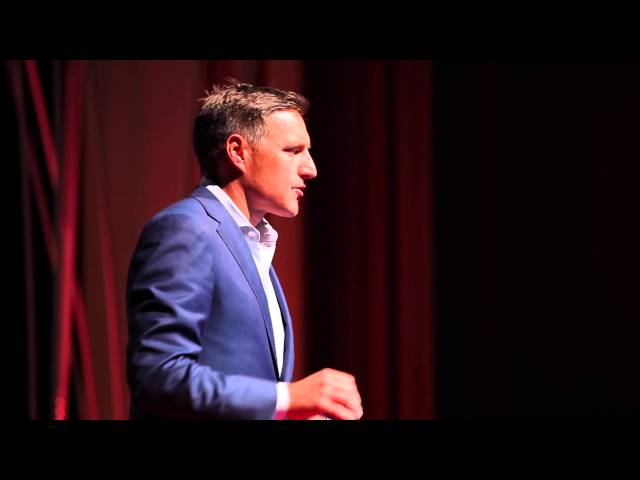n
Small talk accomplished, she took off to scour the rest of her station and I turned my attention back to the restaurant at large. The bustling Giraffe sat at least 120 people and was an incredibly busy place with an endless stream of singles, larger parties, and moms with small squawking kids ensconced in various Dr. Seuss-like vehicles guaranteed to block any and all transit. The turnover was frightening with everyone needing to be served RIGHT NOW so they could make their flights.
Amidst all this dining frenzy was Anna. After watching her work for a short time, I quickly realized she was bionic. Anna moved quickly and effortlessly from table to table, taking orders, serving and clearing, all the while smiling and conversing with diners as if the whole thing was no big deal and just an easy dance. After a few minutes, I had fantasies about cloning her and negotiating a huge contract with a big corporate restaurant group back in the states. Visions of a massive pile of cash danced in my head. With an army of Annas I could, dare I say it, rule the world.
I sat back and thought about Anna and what made her such an all-star at her job. What made her so great? What about her was so different from most people who work in airport fast food places, people who seem like they’ve been condemned to the cocktail lounge in hell with no promise of a return shuttle? The first thing that came to mind was that she was utterly unafraid of hard work. OK, so a lot of people are more than happy to work hard but the wrong person in this particular job would end up hating life almost instantly because it was so insanely busy and the pace never let up. Aside from the work ethic, what made her so different from the endless herd I’ve seen working in fast food joints over the years? Why was she such a valuable employee regardless of whether the management was clued in or not? After further observation, I came up with several reasons:
First, she made genuine eye contact with everyone she spoke. She didn’t fake communicating with anyone. She was, in short, completely HOME, which brings me to the next point: she actually listened to what I was saying even after the order had been taken. Though she was constantly moving like a hummingbird, whenever Anna stopped and chatted she came to a complete halt and put all of her attention on listening to me. You have to know that a zillion things were going on in her head at the same time. At first, I thought it was my irresistible charm but then quickly realized that she did this with everyone at every table.
Finally, two things and they were very, very subtle but they could have been the source of Anna’s magic: every time I asked her a question she smiled in response and leaned in very slightly when answering. Combined, those two responses gave the impression that she cared about what I was saying. Aha! Perhaps this was the key. She not only cared about what I was saying but she probably cared that my experience at the fabulous Giraffe was a good one. That alone set her apart from practically everyone else and made her an all-star; the fact that she not only provided great service—but she actually wanted to take care of the people she waited on.
It’s not often that one has the kind of dining experience I did at the Giraffe, regardless of the level of restaurant. But at certain times we’ve all been there, be it a simple bistro or a three-star fine dining establishment. Meals that can only be described as, for lack of a better term, “magical.” Where everything about the meal, from the ambience to the food to the service, is incredible. I believe that service is the most important part of the dining equation; that a service team who shows empathy, compassion, and the desire to take care of the guest can override practically anything else and create the possibility for one of these rare magical dining experiences. The question then becomes, how to create an environment of hospitality/caring vs. basic serving and further, how to train a service staff to do just that. I’m convinced that a culture of hospitality in a restaurant has to come from the top–and no one knows how to do this better than Bobby Stuckey.
Bobby Stuckey, MS, is a Boulder-based wine professional and restaurateur. Stuckey’s career spans well over 20 years with stints as the wine director at the Little Nell Resort in Aspen as well as The French Laundry in Yountville. In 2004 Bobby and friend, Chef Lachlan Mackinnon-Patterson, opened their first restaurant, Frasca Food and Wine, in Boulder. The concept of Frasca is based on the wines and cuisine of Friuli-Venezia Giulia. In 2011 Stuckey opened Pizzeria Locale, also in Boulder, an upscale casual contemporary pizzeria inspired by the traditional pizzerias of Naples.
Bobby’s 2014 TED Talk about his philosophy of service is legendary in the restaurant world. Recently I spoke to him about it as well as what he calls, “being a hospitalian.”
TG: Your Ted Talk is truly inspirational. Everyone in the industry should watch it. In the presentation, you use the phrase “hospitalian.” How do you define it?
BS: There’s a lot of great service people, but they might not necessarily embrace empathy for the guest or even their co-workers. Hospitality is how you make someone feel and not just the guest in the dining room. It’s something you have to do all the time. If you’re a sommelier, hospitality applies all the way down to the distributors who are calling on you as well as the delivery people. You just can’t turn it on when you walk on the dining room floor. Again, there’s a lot great service people out there but they’re not always great hospitalians. We’ve all been in great restaurants where they’ve hired the best mercenary servers—people who have all the right technical moves. But do they honestly, authentically care about their guests?
TG: How do you train someone to do that? Further, how do you hire someone to do that?
BS: I’m not saying it’s easy. Being authentic about hospitality is really hard because it’s totally against a lot of situations we deal with. We tend to be defensive people and most of us don’t constantly think about the other person. That’s what hospitality has to be; thinking outside and not about yourself. At the restaurant, we have long pre-service meetings—45 minutes–and there’s a piece about hospitality in the meeting every day.
TG: The average age of students in the MS program seems to be going down and people seem to have less and less experience on the floor in service. How can you train someone to really serve, so they take all the attention off themselves and put it on the guest?
BS: I think it’s important for someone just getting into the business without experience to realize that it’s going to be a long road. Very few industries even talk about this, but in the restaurant business to become a top professional is always a long road.
TG: At the end of the Ted talk you implore the audience to become good hospitalians; that it’s not just for restaurants only. Say something about that.
BS: I’ve been around a lot of doctors in the last few years because my Mom was going through some health issues. She’s back to great health now. But many of those doctors didn’t have hospitality or empathy for what patients were going through. It’s crazy. How is it that at Frasca we’re going to care more about a guest being stuck in rush hour traffic trying to make their anniversary dinner than an oncologist with a cancer patient? I’ve seen some great doctors too—but not often. There are so many places where hospitality can be used effectively. I think CEO’s and leaders of companies could be better at what they do by adopting hospitality. Often we hear about companies where there’s a cut throat mentality. This comes from the top down. But you can create an environment of hospitality where people are great to their co-workers.
TG: What can someone do in his or her everyday life to be a hospitalian?
BS: There are so many chances to do it. You can start when you’re in line waiting for a cup of coffee. If practiced every day, it’s something that gets into our rhythm. No one’s perfect; people are going to have bad days; non-hospitalian days. But if you can do it a little bit every day, it can become really impactful. I’m really passionate about it.
TG: I’ve eaten at Frasca several times and each time when I walked in the front door it was like entering a zone. It’s like you’ve walked into a place where you feel that the staff is really going to take care of you.
BS: We’re into it. I’m lucky to have a group of employees that have embraced the whole concept.
TG: One more question: how did you come to be this way? What’s the source?
BS: I just remember being a bus boy and that I wanted to care about the people I worked with as well as the people I served. So the idea of hospitality, even though I didn’t call it that at the time, was something I was always thinking about. As I’ve matured, I hope I’ve gotten better at it.
Here’s a link to Bobby’s TED Talk. If you’ve not seen it, it’s a must.
https://www.youtube.com/watch?v=TH2L_uNkt-Y
nn

